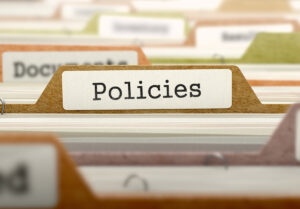John C. Maxwell, a best-selling author in the New York Times, once wrote that growth is the one great thing that separates the successful and the non-successful people. He believed that when he saw someone starting to stray away from the pack, it was nearly always because of personal growth.
Personal development is when someone continuously tries to develop themselves or make themselves better in one way or another so that they can reach their full potential. In the work setting, this can play a huge role when it comes to the level of engagement of an employee.
Workplace culture, on the other hand, is both the personality and character of a business in general. It is what helps gives your business its identity, and it’s a total of the business’ attitude, behavior, interactions, beliefs, traditions, and, most importantly, values. Positive workplace culture will impact satisfaction and happiness, drive engagement and attract talent.
What’s The Relation Between the Two?
When employees grow personally and professionally, they start to get more passionate about what they do. The employees, in return, typically become more motivated to both grow and learn. The more your employees develop personally and professionally, the more engaged they generally become.
So, the more engaged the employees are, the more positive the workplace culture. Your business’s personality is influenced by very many things. Some of these include workplace policies and practices, management, leadership, and the people themselves. When employees buy into personal development, they become better leaders, better managers, and generally better people who can come up with better policies, practices, and so on.
What Impacts Work Place Culture?
In short, almost everything. There are so many moving parts when it comes to developing workplace culture. Some of the factors that come into play include;
• Leadership- The way leaders interact and communicate with employees, how they make decisions, what they emphasize and communicate both to the employees and the outside world, their vision, what they recognize and celebrate, their perceptions and beliefs, and their trustworthiness.
• Management- How your business is managed, its goals, controls, hierarchy, structure systems, and procedures. How much management empowers the employees to act consistently, make decisions by themselves and so on.
• Workplace policies and practices- Such as the practices regarding selection, recruitment, onboarding, recognition and rewards, comp and benefits, performance management, development and training, promotion/advancement, and workplace traditions. As for policies, things like code of conduct, dress code, attendance, etc.
• Communications- How you communicate in the workplace. More importantly, the frequency, degree and type of communication and interaction between both employees and management. Communication also includes how transparent decision-making and information sharing is within the organization.
Takeaway
Most businesses let the culture in the workplace form naturally. They don’t define what they want it to be and don’t consider how important a role personal development plays. This is a mistake. It’s important to take some time to define and evaluate the culture in your workplace. Always have in mind what you want it to be now and in the future.










